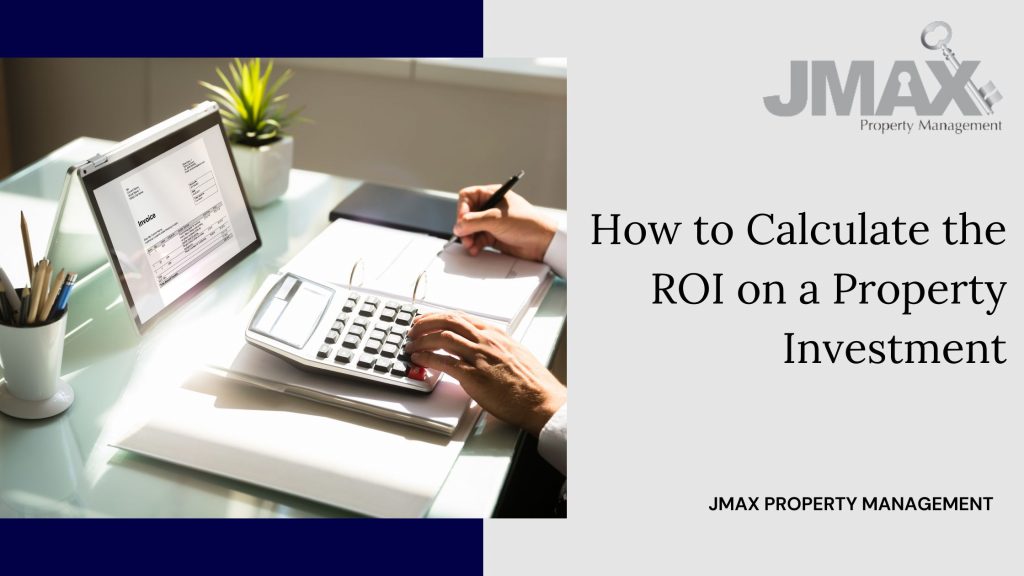
In this present day and age, many people are looking for a safe means of investment where they’ll receive consistent returns.
Rental real estate investing has been lauded by many as one of the most dependable investment vehicles, as it provides passive income, steady monthly cash flow, and a hedge against inflation. Real estate investing also provides a number of tax benefits that can lower your overall financing costs of property taxes and increase your annual returns.
Yet, as with any other form of investment, you first need to evaluate whether it is viable. One of the ways to do this is by calculating the Return on Investment to help you find your profit margins and net income. The ROI is a ratio of profitability that determines the returns you will receive on a rental property as a percentage of the investment costs.
Whether this is your first investment property or your fifth purchase, our financial calculator guide is here to help you calculate ROI and determine key factors integral to your investment strategy. The process is fairly straightforward and will help you make better investment choices.
In this article, we’ll take a closer look at rental property investment and have an in-depth discussion on ROI calculation and important factors. Knowing how to calculate an ROI is key to rental property profitability. This information is vital in helping you find the right investment property to purchase that will facilitate long-term wealth and boost your net income.
The Different Forms of Investment Property
Before you dive into real estate investments, you need to know the type of rental properties available on the market for purchase.
Some of the options on the market for residential rental property investments include single-family homes, multi-family properties, apartment buildings, duplexes, triplexes, quadruplexes, and townhouses, among others. All these properties have different requirements, purchase prices, maintenance costs, and provide varying returns and potential rental income.

In addition, a rental property investor can decide on whether to offer short or long-term rental properties depending on the profitability of the market. Both these options have their advantages and setbacks, and though some may seem similar, properties vary due to their unique needs.
However, as a real estate investor, you should select real estate investments that align with your aspirations and provide you with the best return on investment.
The Information You Need to Calculate ROI
There are certain specific details that you need to calculate an investment property’s ROI. Finding the property’s ROI will guide your investment decision by letting you know whether the potential profits are favorable.
Here are some of the things you need to know for a rental property’s ROI calculation:
Information on the Property Itself
This involves all the real estate specifics of the rental property. Details may account for the overall property value, what income the property generates, the location, the square footage, the number of rooms, the annual operating expenses, the purchase price, insurance, mortgage payments and money borrowed, property appreciation, ongoing financing costs, and other factors.
Real estate information on the rental will give you a broad understanding of what you’re investing in and the current market value. You’ll also need to take note of any necessary renovations.
Details on the Monthly Mortgage Payments
If you’re planning on using debt to finance your rental acquisition with a mortgage or loan, you need to know the lender’s terms on the loan for monthly mortgage payments. Mortgages and loans account for details such as the repayment period, the required down payment, the lender’s interest rates and the real estate closing costs. Mortgage and loan options vary.
The Expected Total Rental Income
The property’s annual rental income is one of the main factors that determine your level of rent returns. It goes without saying that a high rental income is preferable for optimal cash flow. However, you will need additional information on the expected vacancy rate and other potential sources of income.
The Monthly Operating Expenses
When renting properties, you’ll also need to find out how much it costs to run the rental property on a month-to-month basis.

This includes real estate costs such as repair costs and maintenance, monthly utilities and amenities such as water bills, insurance payments, unexpected expenses, monthly dues for the homeowner’s association and the cost of hiring a rental property manager.
The Annual Costs
These ongoing costs only accrue once a year and they may account for payments for the insurance cover and the yearly tax obligations for property taxes.
The yearly costs of the initial investment can be combined with the monthly costs to find the total annual costs of running the property. You’ll need to figure this out before getting a tenant to sign the rental agreement and decide your ideal annual rental income and any potential expenses when engaging in rental property investing.
How to Calculate ROI for a Rental Property
After finding out all the necessary details on the property, you need to calculate the expected return on investment. To do this effectively, there are some metrics to calculate for, like net income and annual operating costs. These figures needed to calculate ROI include the following:
The Annual Cash Flow
Cash flow refers to the expected sum of yearly returns after covering all the expenses and debt. It is calculated by subtracting the outstanding debt from the net operating rental income. Cash flow indicates how much your profit will be at the end of each year.
The Net Operating Income
The net operating rental income, or NOI, is an indicator of how much your rental property earns on a monthly basis. The NOI can be calculated by the annual rental income minus the operating expenses from the monthly gross income, including but not limited to the monthly rent, then divided by the mortgage value.
You should note that the gross income is not limited to the monthly rent, but it may also include other sources of rental income associated with the rental property.
The Capitalization Rate
The Cap Rate provides an estimate of the returns on your property.

The cap rate can be calculated by dividing the annual net operating income by the property’s purchase price of the property. The cap rate can be used as a basis for comparing different real estate investment opportunities.
The Cash-On-Cash Return
An investment property’s cash-on-cash return is the ratio between the after-tax annual cash flow and your initial cost of investment. The initial costs for a cash-on-cash return may include the down payment for the property, net profit, the closing costs and the possible renovation costs.
Real estate investors aim to use the cash-on-cash return to determine the performance of a property, as the cash-on-cash return is accurate and efficient for investors.
Calculating ROI
With the Net Operating Income and the value/ cost of the property, you’ll be able to perform an ROI calculation.
ROI = Net Operating Income/ Value of the property or Cost of Acquisition (purchase price)
In general, the recommended ROI is above 10%. Yet, some investors may be willing to accept an ROI of between 5% to 10%.
The acceptable level of returns for a rental property mainly depends on your goals as an investor as well as how much you’re willing to spend on the unit. Now you know how to calculate ROI on rental properties.
Final Thoughts
As a property investor, there are certain details you need to know before purchasing a rental property. The ROI is a great indicator of what to expect in terms of a property’s performance. However, you should also look out for other hidden expenses that may potentially lower your returns.
Here at JMAX Property Management, we have a deep understanding of the workings of rental property investment.
Our property management company is here to help you with your financial growth by calculating your ROI on rental properties and all other property management needs, like prospective tenant background checks, raising your market value and net profits, and making informed decisions about the real estate market.
Our professional team has great experience in helping Roanoke and Salem property investors to maximize their net income and create a diverse real estate portfolio with profitable investments in multiple properties. Get in touch with us today to find out how we can take your property investment to the next level.


